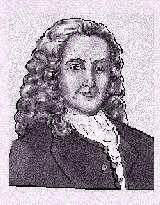
Born: November 21, 1694, in Paris, France
Died: May 30, 1778, in Paris, France
François Marie Arouet, who used the pseudonym Voltaire, was a French author and leader of the Enlightenment movement. One of the most renowned men in the history of thought, he is remembered as a crusader against tyranny and bigotry and noted for his wit, satire, and critical capacity.
Voltaire was born to middle-class parents and educated by the Jesuits at the college of Louis-le- Grand in Paris. At college he developed a penchant for satire and found his quick wit served as admission to higher social circles. He studied classics, garnered a familiarity with poetry and drama, and met a number of noble and influential friends who were to serve him well throughout his lifetime. His father, a lawyer, had intended his son to become a lawyer as well. Voltaire, however, abandoned his legal studies to become a writer.
Early in his career he became known as an adept playwright and continued to write dialogue all his life. Of the more than fifty plays he wrote none have interested modern scholars. As a poet, his biting verses mocking those in high places had earned him several brief exiles from Paris and, in 1717, an eleven month sojourn in the Bastille.
Imprisonment did little to dampen the spirit of the young writer. Voltaire's epic poem La Henriade was well received, but he was exiled for his continued attacks on the monarchy and expression of his liberal religious views. In 1726 he began his three year banishment in England. He developed friendships with such men as Pope, Swift, and Gay, and came into contact with the ideas of Bacon, Locke, and Newton. It is thought that these new contacts increased his interest in philosophical questions. By now he had changed his name to Arouet de Voltaire.
Although the name changed the writer remained the same. With renewed vigor and deeper skepticism he set about to disseminate liberal thought in his homeland. One of his first tools in this cause was Lettres philosophiques sur les Anglais in 1734. He spoke out against established religious and political systems and incurred royal wrath which forced Votaire to flee Paris and settle at Cirey in Champagne with Mme du Châtelet, who became his patroness and mistress. This temporary expulsion of fifteen years allowed him time to cultivate a systematic approach to scientific, religious, and cultural questions.
His diligent work brought rewards: he was appointed royal historiographer, he was elected to the French Academy, he wrote numerous plays, he worked on several volumes of historical criticism, and he published the tale Zadig in 1747.
In 1750 Voltaire became a courtier of Frederick II of Prussia in Berlin. After three years he returned to France and settled on a great estate at Ferney, close to the Swiss border. He spent the remainder of his life there apart from occasional trips to Paris and continued writing such works as Traité sur la tolérance in 1763 and La Pucelle in 1755. Candide, a satire of eighteenth century life and thought published in 1759, remains the work for which he is best remembered. Playing off the philosophical optimism of Alexander Pope and Gottfried Wilhelm Leibniz, Candide exemplifies the Enlightenment movement. Voltaire expressed his tolerant religious and scientific beliefs in a rational manner, free from superstition and skepticism.
Early in 1778 Voltaire was warmly welcomed back to Paris to oversee the production of his play, Irène. There, he died on May 30.